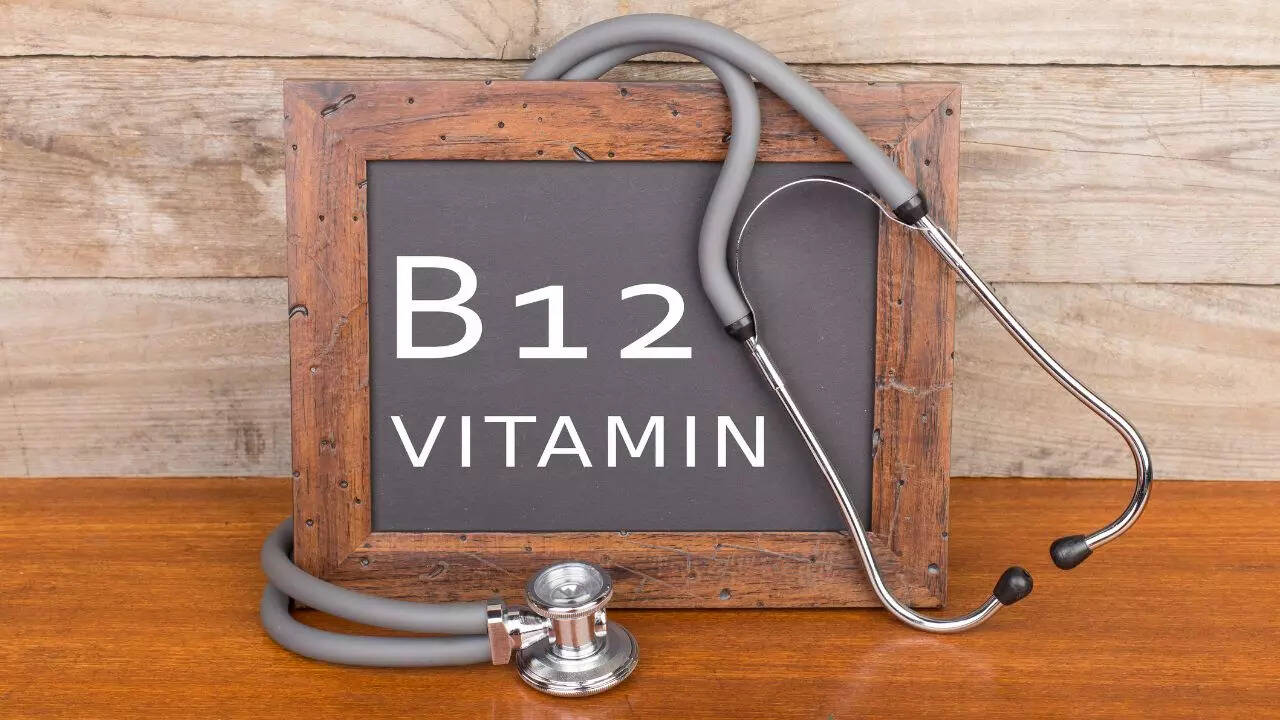
News
September 28, 2025
Vitamin B12 Deficiency in vegetarians: 3 important facts, and how to fix it
Vitamin B12 deficiency can have effects on both mental and physical health. Low levels of B12 can reduce oxygen transport, as it is essential for red blood cell production. Long-term deficiency can even cause irreversible nerve damage. Vegetarians and vegans are particularly vulnerable to this deficiency. Here we mention 3 important facts about vitamin B12 deficiency, and how to fix it.
Are you feeling unusually tired, weak, or experiencing pins and needles in your hands and feet? These could be signs of a Vitamin B12 deficiency, a condition that can significantly impact both your mental and physical well-being. While anyone can be affected, vegetarians and vegans are particularly vulnerable, making it crucial to understand the facts and take proactive steps to prevent and address this deficiency.
Here are three important facts about Vitamin B12 deficiency you should know:
Firstly, Vitamin B12 is vital for red blood cell production. These cells are responsible for carrying oxygen throughout your body. When B12 levels are low, your body struggles to produce enough healthy red blood cells, leading to reduced oxygen transport. This can result in fatigue, weakness, and shortness of breath, impacting your energy levels and overall quality of life.
Secondly, prolonged Vitamin B12 deficiency can lead to serious, even irreversible, nerve damage. B12 plays a crucial role in maintaining the health of your nervous system, protecting nerve fibers and ensuring proper nerve function. A lack of B12 can disrupt this process, potentially causing numbness, tingling, difficulty walking, and even cognitive problems. Addressing the deficiency early is critical to prevent long-term complications.
Thirdly, vegetarians and vegans are at higher risk because Vitamin B12 is primarily found in animal products like meat, poultry, fish, eggs, and dairy. While some plant-based foods are fortified with B12, they often don't provide sufficient amounts to meet daily requirements, especially for those with higher needs.
So, how can you fix a Vitamin B12 deficiency, particularly if you follow a vegetarian or vegan diet? The good news is that it's often easily manageable. Here are a few options:
* **Fortified foods:** Look for plant-based milk alternatives, cereals, and nutritional yeast that are fortified with Vitamin B12. Read the labels carefully to ensure you're getting a sufficient dose.
* **Vitamin B12 supplements:** Oral supplements are a convenient and effective way to boost your B12 levels. Different forms exist, such as cyanocobalamin and methylcobalamin, and a healthcare professional can help you determine the best option for you.
* **B12 injections:** In some cases, particularly when absorption is an issue, a doctor may recommend B12 injections. These are typically administered by a healthcare professional and can quickly
Here are three important facts about Vitamin B12 deficiency you should know:
Firstly, Vitamin B12 is vital for red blood cell production. These cells are responsible for carrying oxygen throughout your body. When B12 levels are low, your body struggles to produce enough healthy red blood cells, leading to reduced oxygen transport. This can result in fatigue, weakness, and shortness of breath, impacting your energy levels and overall quality of life.
Secondly, prolonged Vitamin B12 deficiency can lead to serious, even irreversible, nerve damage. B12 plays a crucial role in maintaining the health of your nervous system, protecting nerve fibers and ensuring proper nerve function. A lack of B12 can disrupt this process, potentially causing numbness, tingling, difficulty walking, and even cognitive problems. Addressing the deficiency early is critical to prevent long-term complications.
Thirdly, vegetarians and vegans are at higher risk because Vitamin B12 is primarily found in animal products like meat, poultry, fish, eggs, and dairy. While some plant-based foods are fortified with B12, they often don't provide sufficient amounts to meet daily requirements, especially for those with higher needs.
So, how can you fix a Vitamin B12 deficiency, particularly if you follow a vegetarian or vegan diet? The good news is that it's often easily manageable. Here are a few options:
* **Fortified foods:** Look for plant-based milk alternatives, cereals, and nutritional yeast that are fortified with Vitamin B12. Read the labels carefully to ensure you're getting a sufficient dose.
* **Vitamin B12 supplements:** Oral supplements are a convenient and effective way to boost your B12 levels. Different forms exist, such as cyanocobalamin and methylcobalamin, and a healthcare professional can help you determine the best option for you.
* **B12 injections:** In some cases, particularly when absorption is an issue, a doctor may recommend B12 injections. These are typically administered by a healthcare professional and can quickly
Category:
Entertainment